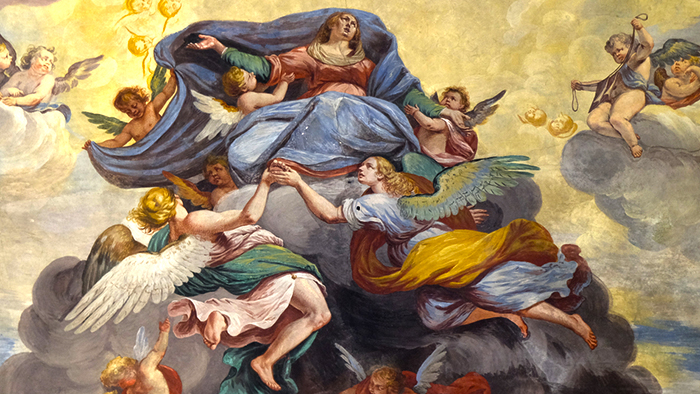
In Luke’s Gospel for the Assumption, Mary sings of God’s mercy and his special care for those whom the world would cast aside. God has “lifted up the lowly. He has filled the hungry with good things,” the young Mary says to her older cousin Elizabeth. The Solemnity of the Assumption of the Blessed Virgin Mary was not defined as a dogma until 1950 but has roots as far back as the fifth century. God’s taking up into heaven of the physical body of Mary is in keeping with what we teach about both the importance of Mary and the importance of our bodies as human creatures. Mary, in her body, goes ahead of us to heaven. Mary, who experienced all the precarity and danger of being a religious minority in an occupied country, who had to flee with her family across a border to save the life of her young child, and who watched a brutal government torture and kill that child as an adult, would come to know the Magnificat in a completely different way over the course of her life. The Magnificat is Mary’s famous song of praise to God. It shakes the complacency of the powerful and reminds them of God’s strength: “He has scattered the proud in their conceit. He has cast down the mighty from their thrones.” Mary’s song and her Assumption could not be more relevant. On August 12, Bishop Vasquez of Austin, Texas, Chair of the U.S. Conference of Catholic Bishops’ Committee on Migration, issued a statement urging protection of migrant families. He declared that a new government rule, which would severely limit asylum eligibility, “jeopardizes the safety of vulnerable individuals and families fleeing persecution and threatens family unity.” The Assumption reminds us of our call to care for all who are experiencing danger, hunger, homelessness, statelessness, or are treated as outcasts. It reminds us that God cares for the least and the lowly, and so must we.
